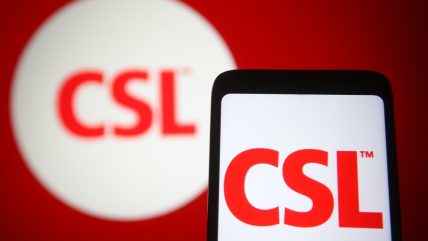CSL’s ‘big’ post-heart attack drug fails in Phase III trial
12 Feb 2024
Clinical ResultPhase 3VaccineDrug ApprovalLicense out/in

Preview
Source: Pharmaceutical Technology
Australian CSL has released topline results from the Phase III AEGIS-II trial of CSL112 in patients following an acute myocardial infarction (MI). Results showed that the drug failed to meet its primary endpoint of a reduction in the risk of major adverse cardiovascular events (MACE) at 90 days.
The company also stated that it had no near-term plans to file for regulatory approval for the drug. Following the news, CSL’s stock was down by more than 4.8% in trading today. The company’s market cap sits at A$143.36bn ($93.4bn).
The placebo-controlled AEGIS-II study (NCT03473223) was one of the biggest undertaken by the company. It enrolled 18,200 patients with acute coronary syndrome – a precursor to MI, across 185 sites worldwide. The trial participants received four weekly doses of CSL112 or placebo, starting within five days of hospital admission.
There were no major safety or tolerability concerns were observed in the treatment group, as per an 11 February press release. The company plans to publish the results and present data from the trial at the American College of Cardiology Scientific Sessions in Atlanta from 6 to 8 April.
The risk of subsequent cardiac events, including a second MI, is high in patients who have suffered acute MI. A systematic review found that following an MI, these patients were at least 30% higher relative risk for all-cause death and cardiovascular outcomes such as recurrent MI and cardiovascular death, compared to the general population.
See Also:
CSL112 is a human apolipoprotein A-I (apoA-I) which was developed as an investigational cholesterol efflux enhancer. Cholesterol efflux is the ability of high-density lipoproteins (HDL) to carry cholesterol particles from plaques in the heart’s blood vessels and move those particles to the liver for disposal, with better cholesterol efflux proposed to result in lower likelihood of MACEs.
CSL’s pipeline also consists of a haemophilia B gene therapy, Hemgenix (etranacogene dezaparvovec). In 2022, the US Food and Drug Administration (FDA) approved the adeno-associated virus vector-based gene therapy for haemophilia B treatment in adults.
The company’s portfolio also consists of a self-amplifying messenger ribonucleic acid (sa-mRNA) vaccine for Covid-19. In November 2023, Japan’s Ministry of Health, Labour and Welfare (MHLW) approved the ARCT-154 vaccine for preliminary vaccination and as a booster in adults. ARCT-154 vaccine was developed as part of a worldwide partnership and licensing deal with Arcturus Therapeutics.
For more details,please visit the original website
The content of the article does not represent any opinions of Synapse and its affiliated companies. If there is any copyright infringement or error, please contact us, and we will deal with it within 24 hours.
Targets
Drugs
Hot reports
Get started for free today!
Accelerate Strategic R&D decision making with Synapse, PatSnap’s AI-powered Connected Innovation Intelligence Platform Built for Life Sciences Professionals.
Start your data trial now!
Synapse data is also accessible to external entities via APIs or data packages. Leverages most recent intelligence information, enabling fullest potential.





